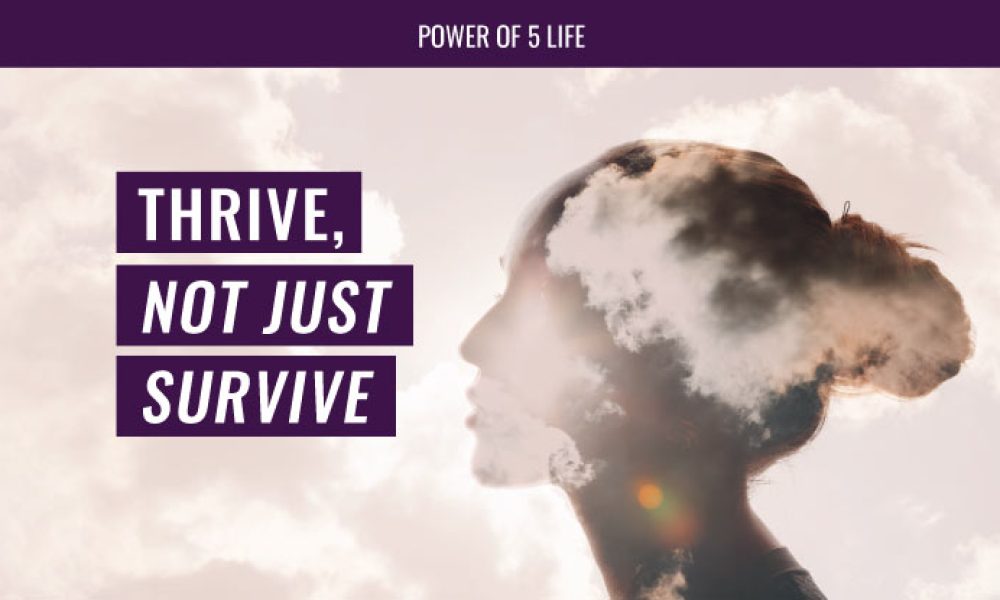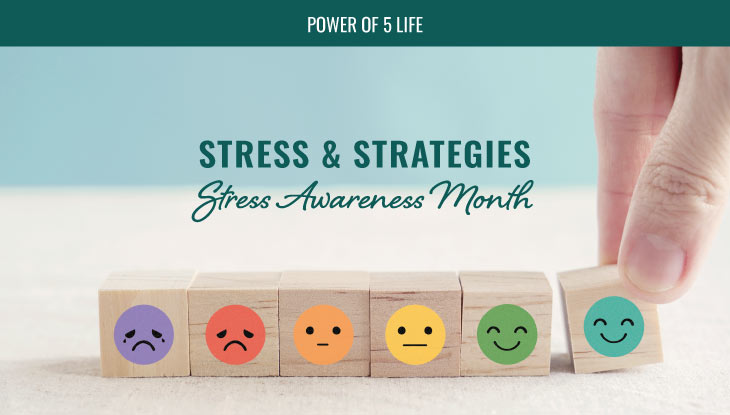Thrive, Not Just Survive: Mental Health Awareness Month for a Healthier, Happier You
Mental health is just as important as physical health for a long and fulfilling life. Yet, it often gets neglected. This May, in recognition of Mental Health Awareness Month, let’s break the stigma and open a conversation about mental well-being.
In the past year, I have been incorporating topics associated with mental health as it is an integral component of our overall health and wellbeing. The World health organization has included mental health in its definition of health: “Physical, mental and social wellbeing, not the absence of disease.”
In my career as a primary care internist/geriatrician, I provided care to hundreds of patients with mental illness annually. Since most of these patients had concomitant medical conditions, I could bill their insurance companies for their medical care but because of stigma and lack of insurance coverage I rarely used a mental illness diagnosis code.
Meet Brenda*
A typical patient Brenda* had high blood pressure, high cholesterol, and she was overweight. She struggled with insomnia, anxiety, depression, and relationship problems with her family and friends. Her psychiatrist had prescribed 4 or 5 medications for her and when that psychiatrist would no longer accept her insurance, she asked me to manage her mental health medication in addition to her regular meds. Her office visits were lengthy; I was proud of the great care I provided her, and she always expressed her gratitude. My experience with Brenda was extremely gratifying as I knew I was filling a void that would otherwise be unmanaged. (*name changed to protect confidentiality)
Here are some important demographic statistics and common conditions to consider about mental illness in the United States to understand why seeking help is essential.
Prevalence of Mental Illness in the U.S.
The National Alliance on Mental Illness (NAMI) highlights the widespread nature of mental health challenges:
- 1 in 5 U.S. adults experiences mental illness each year. That’s a staggering 8 million people (2021 data).
- 1 in 20 adults lives with a serious mental illness such as schizophrenia, bipolar disorder, or major depressive disorder.
- Mental health conditions also significantly impact youth. An estimated 5% of U.S. youth aged 6-17 experience a mental health disorder.
- People with serious mental illness make up a significant proportion of individuals who are unhoused. In the 1980s when state mental hospitals were closed, many people with mental illness fled to live on the streets or have been incarcerated.
These numbers paint a clear picture: mental illness is a common experience, and it can affect anyone regardless of age. I have a firm opinion about what has provoked this “sudden” realization of mental health as a problem: it is the lack of a preventive strategy to diagnose and treat the problem. For a long time, insurance coverage for mental conditions was limited and costly. Individuals who needed intervention could not always afford it, access has always been limited, and it is now worse as the demand has skyrocketed. Here are some topics to ponder …
1. Shattering the Myths: Mental Illness Isn’t Weakness
Imagine someone with a broken leg. We wouldn’t call them weak, would we? Similarly, mental illness often stems from complex biological and environmental factors, not character flaws. Having a mental illness and or being treated in our society has long been stigmatized. Along with access to care and cost, these have been major obstacles to treatment. Let’s challenge these misconceptions and recognize mental health conditions as treatable medical issues.
2. Seeking Help is a Strength, Not Shame
Therapy and medication are just as valid as treatment for physical illness. Just like going to the doctor for a checkup, seeking help for mental health shows self-awareness and a commitment to feeling better. One group that stands out are men, especially those with depression. Men have been brought up to be stoic, and seeking medical care, especially mental health service, is considered shameful.
3. Sharing Stories: Strength in Numbers
Many people overcome mental health challenges with professional help. Sharing stories (anonymously, of course) can normalize seeking help and inspire others to prioritize their well-being. Let’s create a supportive space for open conversation. In recent years, we have seen well-known athletes and celebrities open up about their own personal struggles, setting great examples for others to seek mental health care.
4. Let’s Talk: Open Communication for Better Mental Health
Talking openly about mental health within families and friends reduces feelings of isolation and encourages support. Let’s normalize conversations about emotions and struggles, fostering a sense of community and understanding. This is one example of why I have included socialization in my Power of 5 formula. Loneliness is a health hazard, especially mental health.
I will have more to say in my next blog about mental health, for now remember, prioritizing mental health is a sign of strength. By breaking the stigma, talking openly, and using available resources, we can all create a society that supports mental well-being for everyone.
If you know someone suffering with mental health issues, reach out and encourage them to make a connection for counseling. I discourage trying to provide care if you are an untrained professional. Leave it to the professionals.
To a long and healthy life,
David Bernstein, MD
My blog content was generated by a human (David Bernstein) with the polishing aid of artificial intelligence.




